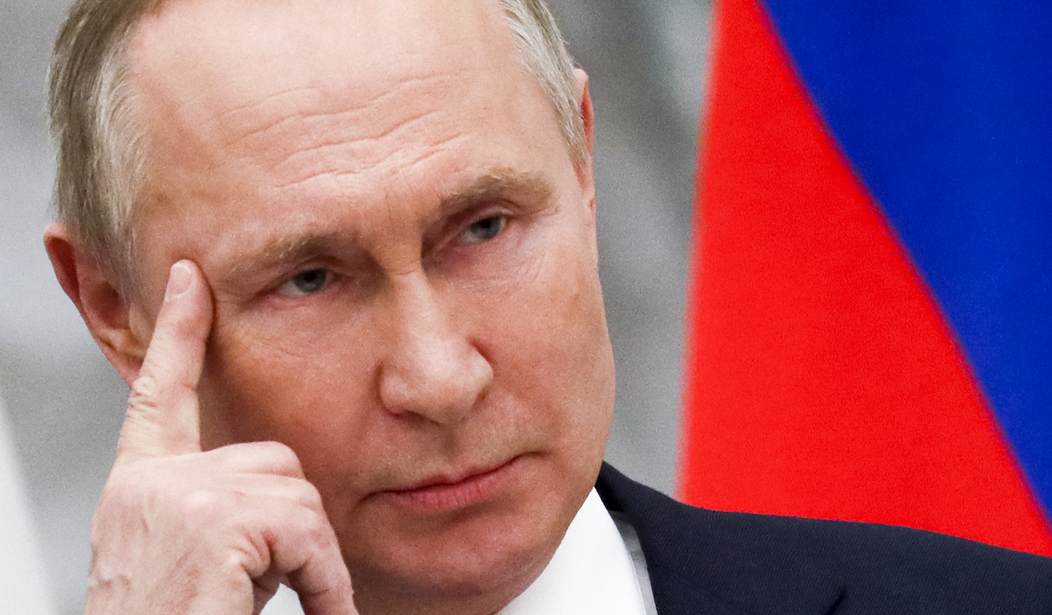Has the Kremlin decided to fight a hot war in the Baltic Sea's cold waters?
On June 17 the Russian Navy deliberately violated Danish territorial water, specifically the Baltic Sea island of Bornholm, which lies north of Poland. During the Cold War Bornholm was a Berlin-like intelligence outpost behind enemy lines.
On June 18 a Russian border patrol helicopter violated Estonian airspace. Two days later the Kremlin threatened Lithuania, warning it would take "measures to defend its national interests" -- to protect Kaliningrad. On June 21, Estonia claimed that Russia was conducting military exercises that included "simulated missile attacks" targeting against Estonia.
With its principle offensive ground forces fighting a dreadful war of attrition in eastern Ukraine, Russia really isn't in a position to militarily bully and intimidate NATO nations with martial tantrums. Yet over a four-day period Russia directed physical and verbal threats of war at three small nations on the Baltic Sea.
Russia attacked Lithuania with words -- but over an important subject, the Russian Baltic Sea exclave of Kaliningrad. Estonia concluded the helicopter overflight warranted summoning Russia's ambassador. Did the simulated missile attack affect that decision? Perhaps that occurred in a secret Russian wargame -- but not so secret a game Estonia didn't get the word. Look to Ukraine to see what real missile attacks do to cities.
Denmark faced an overt military probe of its territorial integrity. A Russian warship violated Danish waters twice.
Finland noticed the four days of provocation and issued, well, not a threat per se, but a riposte of sorts. On June 22 -- the fifth day -- Gen. Timo Kivinen, Finland's Chief of Defense, told Reuters: "We have systematically developed our military defense(s) precisely for this type of warfare that is being waged there (in Ukraine), with a massive use of firepower, armored forces and also air forces." Then he added, "Ukraine has been a tough bite to chew (for Russia) and so would be Finland."
Recommended
The general didn't mention Finland's "zones of defense" featuring bunkers, camouflaged positions and connecting routes that take advantage of Finland's often-difficult terrain. Their depots also stock civilian supplies.
So why the flurry of Russian threats?
Estonia's Defense Ministry told Bloomberg News the upcoming NATO summit in Madrid in part explains the Kremlin's saber-rattling. Russia is angry. That summit will consider Finland's and Sweden's bids to join the alliance.
No doubt that is true. But I think the Kremlin's string of Baltic provocations suggest Vladimir Putin's regime senses vulnerability -- a threat to its territorial integrity.
In a column published March 15 I suggested Russia's failure to achieve a quick victory in Ukraine exposed Russia to loss of its own territory -- despite its nuclear arsenal.
That column's hypothesis: The Russian Army's slipshod combat performance in Ukraine raises hard questions about the Kremlin's ability to wage conventional war against a peer enemy. That suggests the Kremlin's greatest geostrategic treasure, resource-laden Siberia, is vulnerable.
To whom? Not NATO, but communist China. For the first time in centuries China possesses a more powerful military than Russia. According to Beijing's propagandists, Siberia belongs to China.
The great leap forward in future history: China would enforce its territorial claim as Russia withers.
Beijing has an imperial energy (a delusion, in my view) that could spur an invasion of Siberia.
Evidence: An imperial delusion drove Putin to attack Ukraine.
Back to the Baltic threat theater: Sure, Russia wants to check European shipments of weapons and supplies to Ukraine. I think that's why several weeks ago Putin threatened nuclear strikes -- and looked foolish for it.
The Deep Fear: The Kremlin knows its Baltic exclave, Kaliningrad.
Sandwiched between Lithuania and Poland (both NATO nations), until the end of WWII Kaliningrad was the Prussian city of Konigsberg. Putin's Kremlin prizes this Soviet imperial remnant. All is not well in Kaliningrad. In 2018 the Kremlin was conducting an intense information war against what it called the "Germanization of Kaliningrad."
Review Russia's June 20 threat to Lithuania. Citing sanctions on Russian trade, Lithuania closed the transit of Russian goods to Kaliningrad.
And the Kremlin felt the noose.
To find out more about Austin Bay and read features by other Creators writers and cartoonists, visit the Creators Syndicate webpage at www.creators.com.

























Join the conversation as a VIP Member